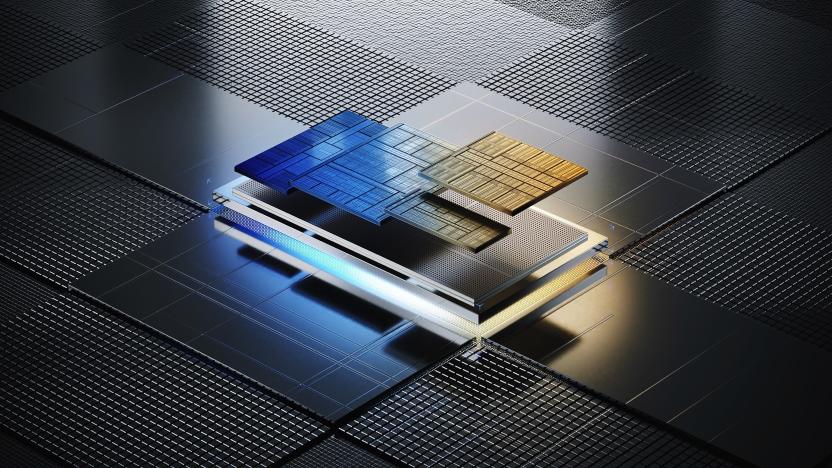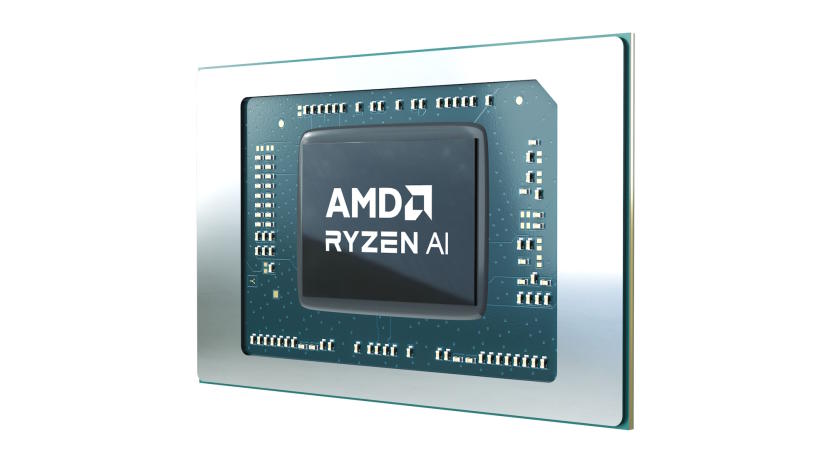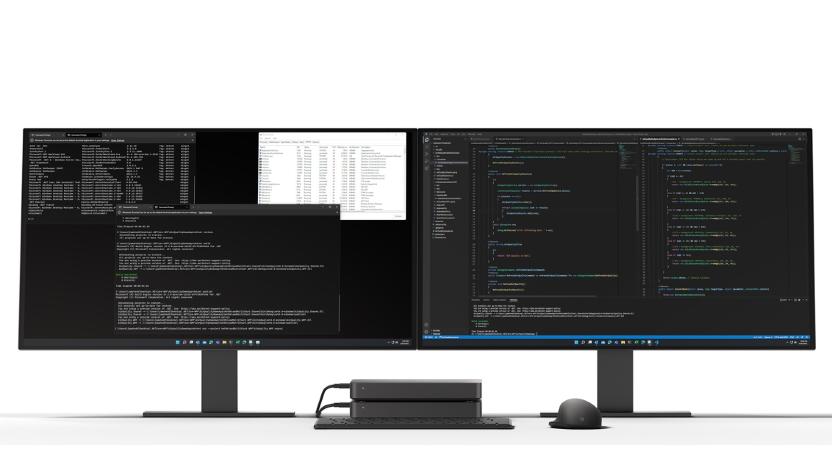NPU
Latest

Intel unveils Core Ultra, its first chips with NPUs for AI work
Intel today is entering the "AI PC" era with the launch of its new Core Ultra notebook chips.

AMD's Ryzen 8040 chips remind Intel it's falling behind in AI PCs
AMD has unveiled the Ryzen 8040 series chips, its next batch of AI-enabled processors.

Microsoft's Project Volterra is a mini PC for ARM developers
Microsoft designed Project Volterra to help developers with building native ARM apps that employ AI-accelerated workloads.

Huawei's next mobile chipset is ready for our AI-powered future
A big part of Huawei's multi-year push to improve its image has been improving the hardware it builds to go inside them, and its latest processor is more than up to the challenge. Unveiled today at IFA 2017, the Kirin 970 chipset goes beyond the initial machine learning implementation of previous designs and is ready to be an AI processing powerhouse. Earlier this year Huawei introduced "the intelligent phone" with its Mate 9 (pictured above), but the new hardware could help fix some annoying AI-related drawbacks of the device. While AI work done in the cloud is one thing, on-device AI computation will continue to grow, with the need for sensors to operate without waiting to send any information back and forth over wireless connections. Native AI processing will enable faster image and voice recognition, as well as "intelligent photography." A few people first spotted some specifications at the company's IFA booth, showing that it's sticking to last generation's octa-core setup with four 2.4Ghz Cortex-A73 processors and four 1.8GHz Cortex-A53 cores, but produced using an improved 10nm process instead of the old 12nm.

Bigfoot Networks returns with Killer Xeno network card
Our hearts are aflutter this morning, as the long forgotten Bigfoot Networks has returned with a vengeance in order to fulfill desires of steroid-infused network interface cards. Nearly 2.5 years after the introduction of the original Killer comes the Killer Xeno, a next-gen NIC with more memory, an upgraded network processing unit (NPU) and integrated audio for hardware-accelerated voice-chat. Basically, this card promises that hardcore gamers / yappers will enjoy a "hiccup-free" voice experience while fragging, and if you reckoned you'd have to look far and wide to find one, you'd be mistaken. Today at the Game Developers Conference, Bigfoot has also announced a deal with Alienware, which will soon become the first exclusive PC OEM to ship the Killer Xeno Pro; beyond that, EVGA has become the firm's first exclusive third party AIB partner to license Killer Xeno. The Killer Xeno will arrive shortly in two flavors: the 256MB "Ultra" and 128MB "Pro," which will sell for $179.99 and $129.99, respectively.%Gallery-48349%

China takes the leap: Emdrive aka Infinite Improbability Drive now in development
While the rest of the world was in some kind of mass coma over the past year, China decided to have a hand at building the highly controversial Emdrive (electromagnetic drive) -- an engine that uses microwaves to transform electrical energy into thrust, all in a comparably light-weight, efficient package. The end result could mean 41 day journeys to Mars, not to mention terrestrial vehicle propulsion and satellite applications. Perpetual motion malarkey you say? British scientist and originator of the concept, Roger Shawyer of Satellite Propulsion Research Ltd. (SPR), assures you it's nothing of the kind, and Chinese Professor Yang Juan concurs. Research headed by Juan at Northwestern Polytechnical University (NPU) in Xi'an commenced in June 2007, and a thruster now being built based on Shawyer's theories is scheduled for completion by the end of this year. Meanwhile in the US: cue the sound of crickets.[Via Wired]



